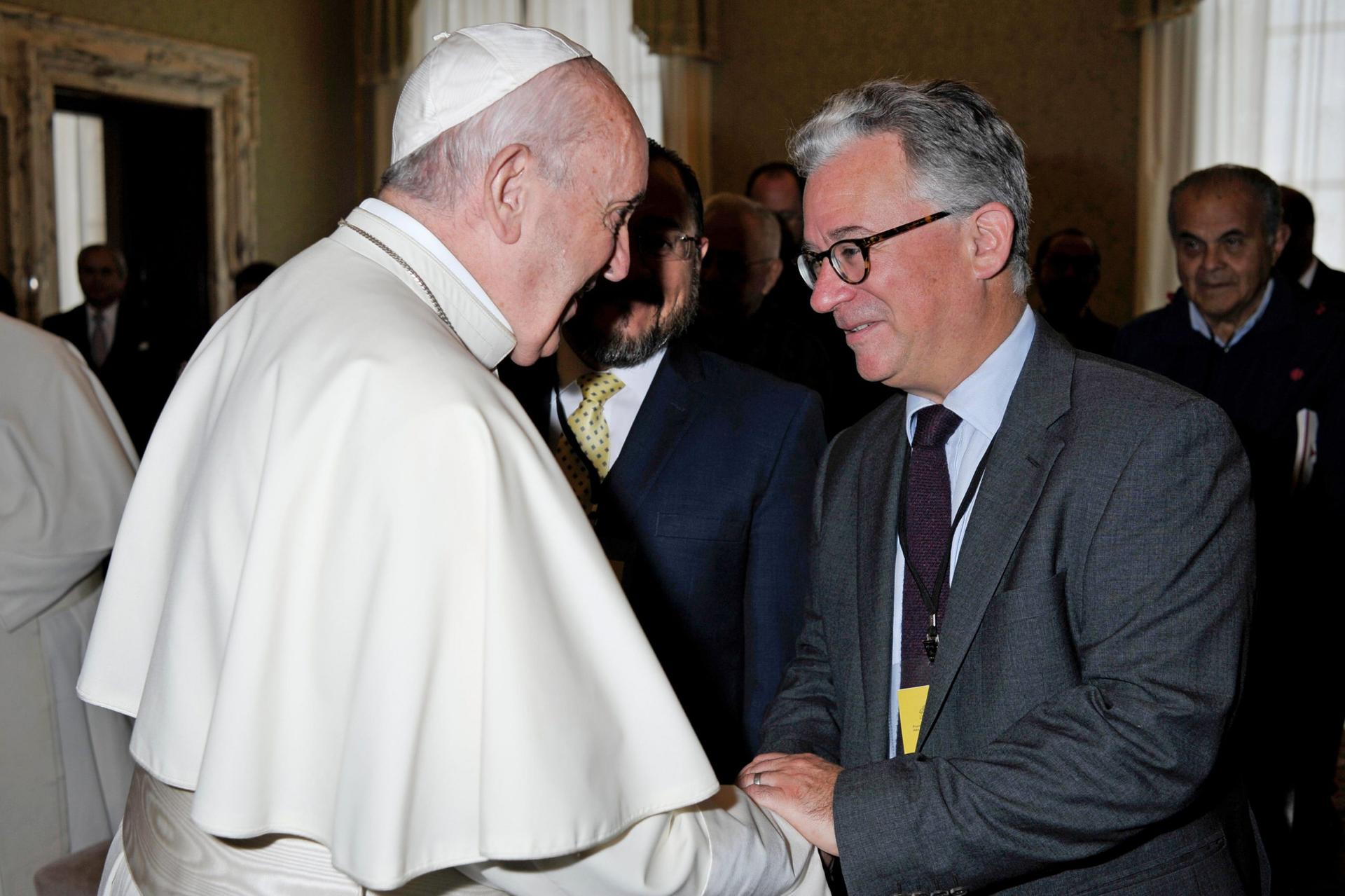ROME—Pope Francis says to counter the growth of populism around the world it’s necessary for politicians to propose initiatives that are rooted in local communities and their values.
“The true response to the rise of populism is precisely not more individualism but quite the opposite: A politics of fraternity, rooted in the life of the people,” Francis said in a video message released Thursday. “I like to use the term popularism … it is about finding the means to guarantee a life for all people that is worthy of being called human, a life capable of cultivating virtue and forging new bonds.”
The pope’s comments came in a pre-recorded video he sent to the participants in the international conference A politics Rooted In the People, a reflection on Let Us Dream, organized by London’s Centre for Theology & Community in east London, Catholic Campaign for Human Developmen, and six other Catholic institutions in the United Kingdom, the United States and the European Unions.
The conference heard from grassroots Christians – including care workers, teaching assistants and cleaners – alongside academics, community organizers and clergy.
The keynote address was given by Austen Ivereigh – the journalist behind Francis’s interview book Let Us Dream. The Path to a Better Future, published last year.
According to Francis, “now, more than ever,” it’s necessary to “build a future from below, from a politics with the people, rooted in the people.”
The pontiff notes that in Let Us Dream he calls this “politics with capital P,” politics as a service opening new paths for the people to organize and express themselves, meaning that they’re not politics “just for the people, but with the people, rooted in their communities and in their values.”
“When people are cast aside, they are denied not just material wellbeing but the dignity of acting, of being a protagonist of their own destiny and history, of expressing themselves with their values and culture, their creativity and fruitfulness,” Francis said in the video. “That is why it is impossible for the Church to separate the promotion of social justice from the recognition of the culture and values of the people, which include the spiritual values that are the source of their sense of dignity.”
In Christian communities, he added, those values are born from the encounter with Jesus, “who tirelessly seeks out the lost and downhearted, those struggling to live from day to day, to bring them the face and presence of God.”
Francis also noted that many of the conference’s participants have long been working in the peripheries, “walking with the people’s movements,” something which he acknowledged can be uncomfortable at times.
“Some accuse you of being too political, others of trying to impose religion,” he said. “But you understand that respect for the people means respect also for their institutions, including their religious ones; and that the role of those institutions is not to impose anything but to walk with the people, reminding them of the face of God who always goes before us.”
Meeting the “wounded Christ” in the poorest communities allows the Church to recover its missionary vigor, Francis argued, noting that the institution was born “in the margins of the cross.”
“If the Church disowns the poor, she ceases to be the Church of Jesus; she falls back on the old temptation to become a moral or intellectual elite,” he said.
Much like the Church has to be rooted in the poorest communities to recover its missionary strength, a politics that turn its back on the poor is incapable of promoting the common good: “A politics that turns its back on the peripheries will never be able to understand the center, and will confuse the future with a self-projection, as if in a mirror.”
Francis argued that having contempt for the cultural, spiritual and religious values of the people is also turning one’s back on the poor, by either ignoring them or exploiting them for power.
“The contempt for the culture of the people is the beginning of the abuse of power,” the pope said. “In recognizing the importance of spirituality in the lives of the people, we regenerate politics. That is why it is essential that faith communities meet together and fraternize in order to work ‘for and with the people’.”
During his own live remarks, Ivereigh said that what Pope Francis is proposing, both at the conference and in the book, is a politics that is “not concerned only with bread-and-butter issues like jobs, and housing, wages and street safety, but which gives expression to deeply held values.”
“A politics that is not just practiced when we vote as individuals in elections, but when we come together in and through our institutions to hold state and market to account, to build fraternity in civil society, and to give voice to ordinary people as they organize for change,” Ivereigh said.
Follow Inés San Martín on Twitter: @inesanma














